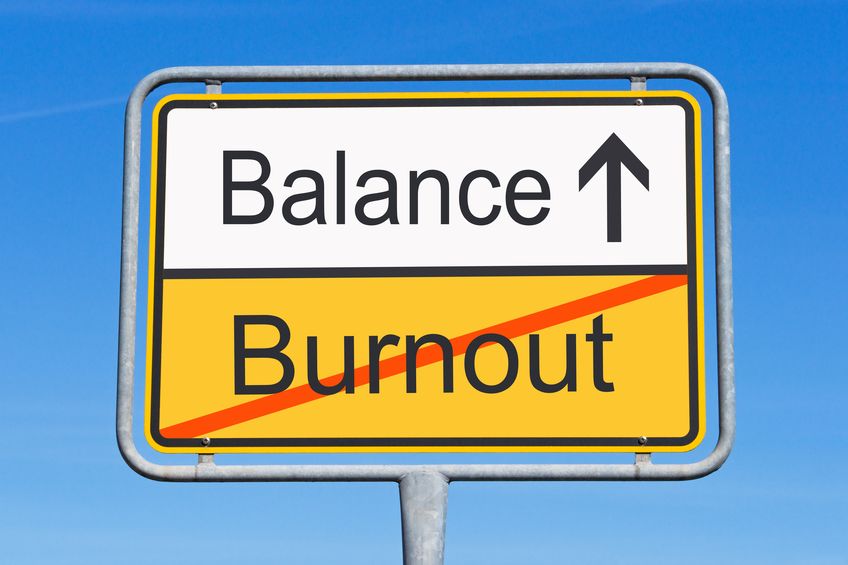
Burnout is a psychologically recognized type of work-related stress that results in emotional, mental and physical exhaustion. A recent Gallup study of nearly 7,500 full-time employees found that 23 percent reported feeling burned out at work very often or always, while an additional 44 percent reported feeling burned out sometimes.
Professionals are often accustomed to some level of work-related stress. However, burnout is an extended period of stress that, if not alleviated, can be harmful to one’s health. It is characterized by cynicism, lethargy and even depression or feelings of hopelessness. We’ve all endured bouts of long hours or responsibility overload, but burnout comes with potentially dangerous physical and psychological side effects.
Build Positive Work Habits
To prevent burnout, it is important to know how to recognize its signs and symptoms and then practice these techniques to diminish and alleviate it:
- Allow breathing room between projects.
- Thoroughly understand the expectations of your role on individual projects.
- Know the warning signs of your workload breaking point.
- Give yourself permission to say “no” when you’re on overload.
- Communicate with your team when you need help and develop a support system.
- Avoid dysfunctional workplace relationships.
Being passionate about your job, while important, can make it difficult to know when to step away. That’s why developing positive work habits go a long way to shape a healthy approach to work.
Practice Daily Work-Life Balance

The COVID-19 pandemic altered our lifestyles dramatically. While we used to spend the bulk of our time at the office, many of us now spend most of our time at home. Despite our reduced commutes and the flexibility of at-home workspaces, working from home makes it all too easy to overload our plates. In fact, 23 percent of remote workers say they work longer hours than they would on-site. Additionally, many households are juggling at-home education, childcare and other challenges.
When work becomes overwhelming and hard to manage, burnout becomes a serious possibility. Consider the following work-life balance techniques:
- Avoid multitasking and create work/personal boundaries.
- Create a daily schedule with built-in breaks.
- Practice daily self-care including eating well and exercise.
- Get outside when you can or change your scenery.
- Schedule a time to unplug each day.
- Even when you’re working at home, incorporate vacation time into your schedule.
Business performance coach and stress-reduction expert, Ron Foglia, shared via his Drop in CEO podcast that simply trying to incorporate healthy habits can go a long way. He advises, “Don’t worry about getting it right. You can only do your best, and your best will vary from day to day.”
Let Your Values Guide You

On Mitchell Levy’s Thought Leader Life podcast, empowerment expert Paula Peralta shared her insights on how to avoid burnout. She believes that “many people experience burnout because they are not true to their passion and that they are living someone else’s narrative.” That’s one reason it is important to have a career you are passionate about. We all get bogged down by a job that doesn’t fulfill, engage or enlighten us. So, find ways to let your personal values guide and improve your work duties, whether it is the job itself, the people you help or creatively incorporating your passions into your daily functions. In addition, consider these life lessons:
- Ensure your personal values are aligned with your company and team.
- Seek joy in what you do.
- Live and work with mindfulness.
- Connect with, learn from and grow with your colleagues.
Avoiding burnout is more than simply knowing when you need to relax. It requires self-awareness, positive work habits and meaningful communication with your team and personal connections. It represents your commitment to take care of yourself. By doing so, you are helping yourself, your family, your colleagues and your company.
